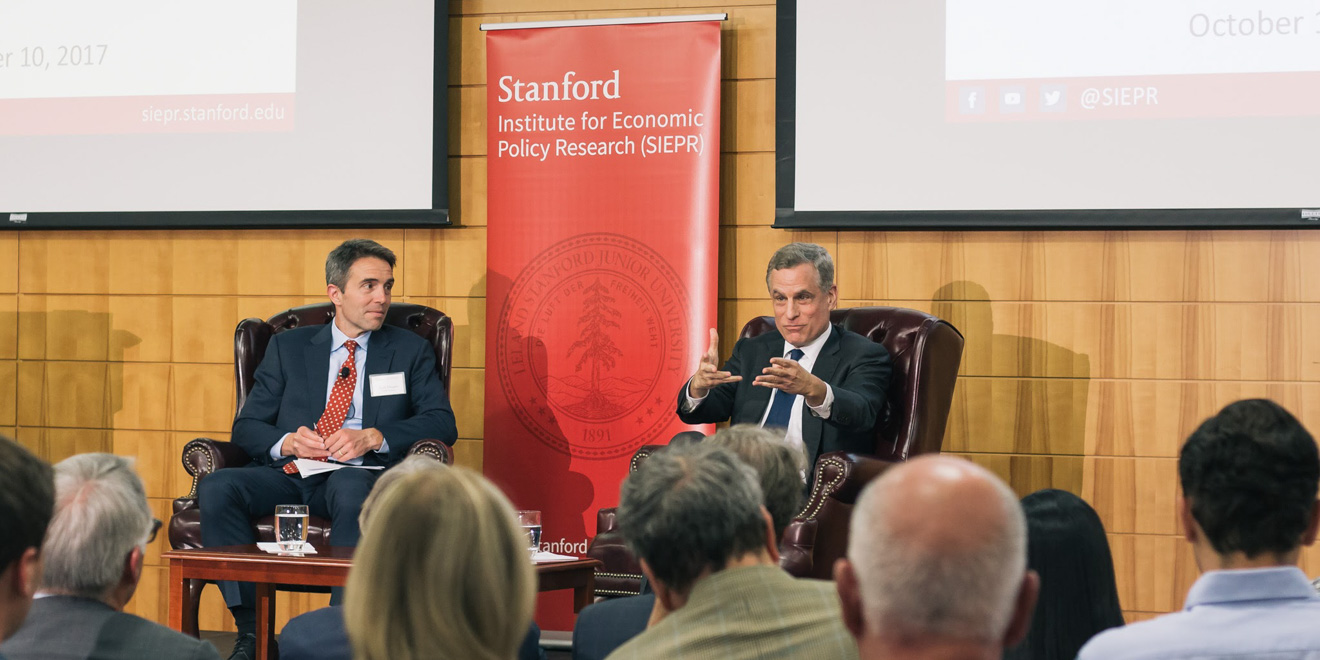Robert Kaplan, president of the Federal Reserve Bank of Dallas, spoke Tuesday at the Stanford Institute for Economic Policy Research (SIEPR) on the impact of Hurricane Harvey on Texas, sluggish economic growth, monetary policy and the importance of migration and globalization for the U.S. economy.
Explaining the impact of Hurricane Harvey on Texas, Kaplan said that the Federal Reserve believes that Texas’ economy will face a reduction in GDP growth and job growth in the third quarter this year. However, he stressed that Texas will be able to rebuild itself quickly with philanthropic and governmental efforts.
Kaplan emphasized that Texas’ economy has been doing well despite recent challenges, attributing Texas’ economic success largely to migration into Texas, which has increased its population. He raised concerns that states with stagnating populations might face economic downturns in the future.
Connecting population growth to the U.S. economy generally, Kaplan said that an aging population and a slow growth in workforce are the primary reasons for sluggish economic growth.
In order to counter these problems, specifically to increase workforce participation, he emphasized the importance of improving middle-skill training, which requires education beyond high school but not a four-year degree, and increasing retention rates in the economy.
Kaplan told The Daily that he is an advocate for middle-skills training as an alternative to college education, claiming that a large percentage of college students do not graduate in six years – something that, in his opinion, “raises the question of college readiness and whether other paths might be more appropriate.” He added that the high demand for skilled jobs in conjunction with a shortage of skilled workers is a lost opportunity to the U.S. Kaplan also placed the onus of increasing the awareness and accessibility of middle skills jobs on educational institutions.
Discussing employment trends, Kaplan argued that globalization and automation-led unemployment should not be conflated in their effects on American jobs, saying that globalization is an essential part of the world economy and that “growth of economy outside of the U.S. helps the U.S. [economy].”
When asked what Stanford students could do to become more informed about the Fed, Kaplan suggested that students read publicly available speeches of Fed officials.
“It is important that people like me express what’s going on in a way that is easily accessible, in a way that my nephew, and friends of mine, and my mom and others can read and can understand,” he said.
Kaplan’s visit is one of many events at SIEPR featuring professionals from the academic, business and public spheres. In November, SIEPR will be hosting James Dimon, CEO of JP Morgan Chase and Steve Ballmer, former Microsoft CEO and current owner of the LA Clips.
Contact Renee Li at reneeli ‘at’ stanford.edu and Sean Chen at kxsean ‘at’ stanford.edu.
